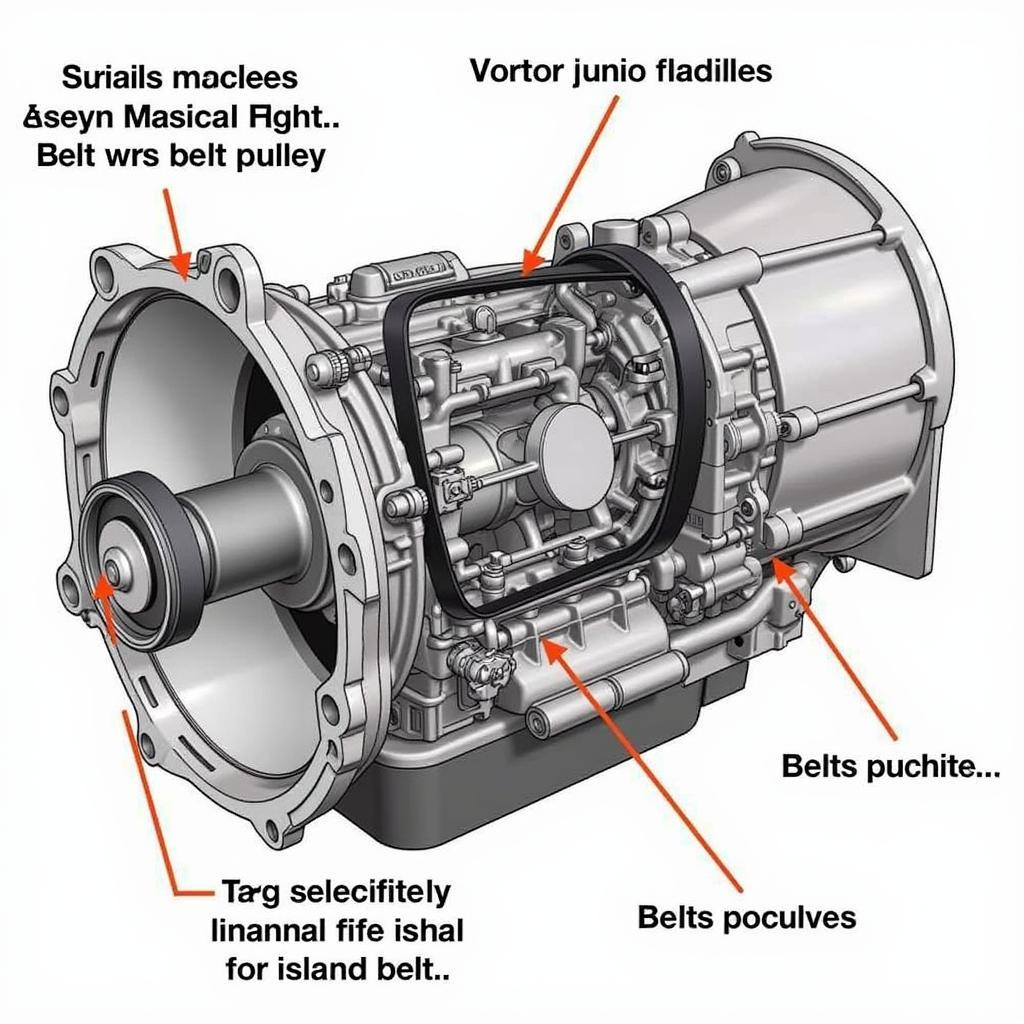CVT transmissions, known for their smooth shifting and fuel efficiency, have become increasingly common. However, they’ve also gained a reputation for potential reliability issues. This article dives into common CVT problems, identifies car models frequently associated with these issues, and offers advice on maintenance and troubleshooting.
Understanding which vehicles have a history of CVT problems can help you make informed decisions, whether you’re buying a used car, maintaining your current vehicle, or troubleshooting a transmission issue. While CVTs offer benefits like improved fuel economy and a seamless driving experience, some models have experienced more problems than others. Knowing what to look for is essential for avoiding costly repairs.
Similar to [worst cars for transmission problems](https://autotippro.com/worst-cars-for-transmission problems/), some makes and models have consistently shown issues with their CVTs. Let’s explore some of these common problems and the cars affected.
Common CVT Transmission Problems
Several recurring issues plague some CVT systems. These include:
- Overheating: CVTs can overheat, especially under heavy loads or in hot climates, leading to fluid degradation and damage to internal components.
- Slipping: A slipping CVT can feel like the engine is revving without the car accelerating properly. This can be caused by worn belts or pulleys.
- Fluid Leaks: Leaks in the CVT fluid system can lead to low fluid levels, causing damage and eventual transmission failure.
- Shuddering or Juddering: This can feel like a vibration or shaking, often occurring during acceleration. It can be a sign of failing sensors or other internal problems.
- Sudden Acceleration or Deceleration: This can be a dangerous problem and may indicate a faulty control module or other electronic issues.
Which Car Models Have CVT Transmission Problems?
Some car models have been reported to have more CVT problems than others. This doesn’t mean every car of these models will have issues, but it’s something to be aware of. Some of the vehicles frequently mentioned include certain Nissan models, particularly the Altima, Sentra, and Murano. Other brands, like Subaru, have also faced scrutiny for CVT issues in models like the Forester and Outback. It’s important to research specific model years as some have been more problematic than others. For example, certain years of the Jeep Cherokee and Honda CR-V have also seen a higher number of CVT-related complaints.
 Nissan CVT Transmission Problems
Nissan CVT Transmission Problems
Troubleshooting CVT Problems
If you’re experiencing CVT issues, here are some steps you can take:
- Check the CVT Fluid: Ensure the fluid level is correct and the fluid is clean and free of debris. Low or dirty fluid can contribute to a variety of problems.
- Scan for Trouble Codes: Use a diagnostic scanner to check for any stored trouble codes related to the CVT. These codes can help pinpoint the source of the problem.
- Inspect the CVT Cooler: A malfunctioning cooler can lead to overheating, so check for leaks or blockages.
- Consult a Specialist: If the problem persists, consult a transmission specialist or a qualified mechanic experienced with CVT repair.
Maintaining Your CVT Transmission
Proper maintenance is crucial for extending the life of your CVT. This includes:
- Regular Fluid Changes: Follow the manufacturer’s recommended intervals for CVT fluid changes. This is essential for keeping the fluid clean and preventing damage to internal components.
- Gentle Driving Habits: Avoid aggressive acceleration and sudden stops, as these can put extra strain on the CVT.
- Regular Inspections: Have your CVT inspected by a qualified mechanic as part of your regular maintenance schedule.
This is similar to list of nissan car cvt problems, highlighting the importance of preventative maintenance. Regular checkups can save you a significant amount of money in the long run.
Why Are Some CVTs More Problematic?
Several factors contribute to CVT problems in certain models. Design flaws, manufacturing defects, and improper maintenance can all play a role. Some manufacturers have also been criticized for using subpar materials in their CVT units.
“CVT technology has evolved significantly, but some manufacturers have struggled to implement it reliably,” says automotive engineer, John Miller. “Proper maintenance and early diagnosis of problems are key to maximizing the lifespan of a CVT.”
Conclusion
CVT transmissions offer several advantages, but they can also present challenges. Being aware of the potential problems and the car models associated with them can help you avoid costly repairs and make informed decisions. Regular maintenance and prompt attention to any warning signs are crucial for extending the life of your CVT. For further insights into transmission issues across different models and years, you might find problem cars by year and model helpful. Feel free to connect with us at AutoTipPro at +1 (641) 206-8880 or visit our office at 500 N St Mary’s St, San Antonio, TX 78205, United States for any further assistance.
This mirrors some of the issues discussed in subaru legacy car problems, where specific components can become problematic. Remember, staying informed and proactive is the best way to manage CVT-related issues.




Leave a Reply